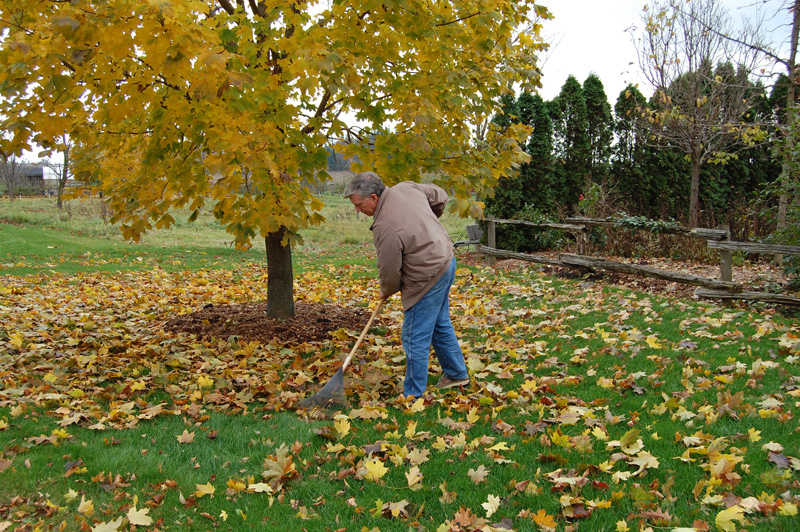Leaves: A Valuable Resource
published October 24, 2015
“Dad, what would you do if you were mayor?” My son asked me this question while sitting in a small boat with a fishing rod in his hands. It is the kind of question that stimulates discussion and I think that was what he was trying to do. It worked.
“I would plant a lot more trees, for one thing. That would save the city money by reducing infrastructure costs and I would use the money saved to plant more trees.
And I would stop picking up leaves that people shovel to the end of their driveway, except where fallen leaves are a safety concern, like streets without sidewalks. And I would take half the money that I saved and invest it in a campaign to educate people about how they can use leaves to their advantage. I would use the other half of the money to plant more trees.”
Trees and leaves: they go together like bees and flowers, birds and bird-song, seeding and harvest. You get the idea.
The trees that grow in our city are a very valuable asset, as are the leaves that they produce. If this is news to you, please read on.
My 5 alternatives to ‘throwing your leaves away’:
1. Leaves are 100% carbon. All of the life is sucked out of them as sap moves from the top portion of the tree into its’ roots as it prepares itself for winter. I recommend that you rake the leaves off of your lawn, where they can kill it by blocking the beneficial rays of the sun from contact with grass blades, and rake them on to your garden. Simple. Just leave them there to rot. They become fodder for earthworms, which convert them into nitrogen rich worm-castings which are good for everything that grows. By fostering a healthy earthworm population, your garden soil will ‘open up’ as they tunnel their way to and fro, allowing oxygen to move into the root zone of your precious garden plants. It is all good.
2. Compost. Run your power mower over your leaves after you have heaped them up about 20 cm high. Raise your lawn mower to its highest setting before you do this and wear safety glasses. Rake up the mulched leaves, which will have been reduced to less than 5% of their pre-mulching volume and place in your compost bin or pile.
3. Mulch your leaves. Repeat the same exercise as in #2 only this time don’t make the pile quite so high. 15 cm will do the job and if your leaves are dry, so much the better. You will notice that when you mulch your leaves in this way they disappear into nowhere. Well, that isn’t exactly true. They are driven into the root zone of your grass plants where they break down naturally in the wet and cold pre-winter weather. Out of your sight and doing a great job for your lawn. Remember that the most important fertilizer application for your lawn is right now through early November. Use a ‘winterizer’ formula.
4. Into the woods. There are many people who do this and a few of them feel guilty about it. No need. The soil that exists on the floor of a mature forest was placed there by Mother Nature to create a bed of humus in which the trees of the forest can put down roots and take nutrition. If you own a cottage with a lawn this is a practical use of fallen leaves. Ditto a city property that backs on to a ravine or conservation area.
5. Oak Leaves. I have heard this one before: “I have oak trees in my backyard so I have to rake them, bag them and put them out at the end of the driveway for pick up.” Not true. If you rake oak leaves into piles about 20 to 25 cm high and run your lawnmower over them (as in #2) you will have pulverised the little devils into small pieces that will rot down in time and provide valuable fibre for your compost or flower beds. In other words, tip #1 works just fine with oak leaves, but you really should mulch them first. It is true, by the way, that oak leaves take longer to break down than most other leaves: no problem. They add value to your soil during every stage of their decomposition.
Perhaps you have already picked up on this theme: leaves are good for the earth, for your garden and they have a purpose when left on the forest floor. The only problem with leaves is the attitude that we have to sanitize our yards of them before we batten down the hatches for winter.




